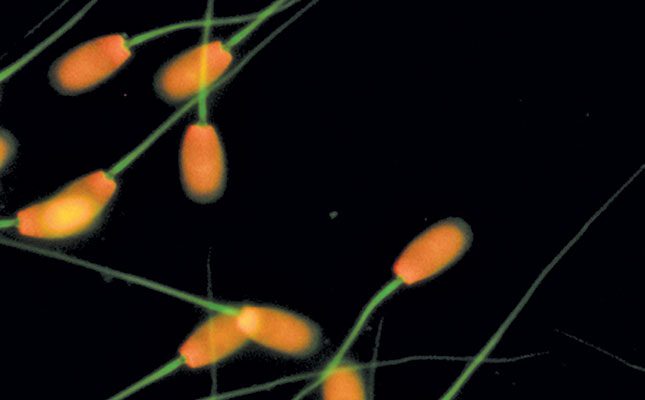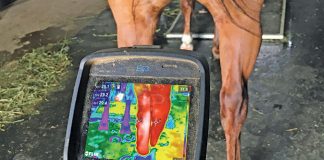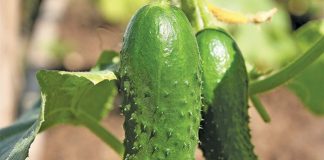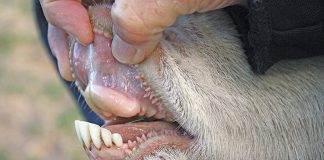
Photo: Supplied
Semen quality is important for artificial insemination (AI) for improved livestock production. Semen is frozen using either a controlled-rate, slow-cooling method or a newer flash-freezing process known as vitrification.
Often, the semen needs to be stored at lowered temperatures to preserve its viability prior to AI. The lower temperatures used varies depending of the period of storage.
READ A step-by-step guide to the process of artificial insemination
Generally, an extended period of storage is preferred at -196˚C during a process called cryopreservation.
Historically, semen stored at these temperatures shows acceptable but compromised motility and viability, raising doubt about its ability to fertilise as previously shown in in vitro experiments.
Also, the quality of cryopreserved semen is often compromised depending on the semen source. Semen from some livestock breeds tends to indicate compromised quality that is not good enough for use during AI procedures.
Comparatively, bovine and small stock (sheep and goats) show comparable and acceptable semen qualities following cryopreservation as compared to porcine semen. The observed differences has led to investigation as to the reason for such differences.
Studies show that the first line of defence for sperm cells, that is the membrane, seems to be the first to be compromised following cryopreservation.
Porous membranes
When these cells are stained with various dyes to investigate whether the membranes are damaged, the observed analysis indicates that some cells have porous membranes where the dyes can easily enter the cells quickly and freely as compared to those cells that present a more robust resistance to membrane damage under the same conditions.
Endeavours to find cheap and effective supplements for semen cryopreservation are always being investigated. Current supplements have shown some level of efficacy, with some showing accompanying toxicity over time.
More importantly, they require financial input for minute amounts not sufficient for multiple or duplicate assays.
READ Is artificial insemination right for your farm?
Cheap and natural supplements are now often sought for semen cryopreservation because they possess the added advantage of being highly abandoned.
Recently published articles show that plant extracts are effective in protecting and improving semen quality following cryopreservation. These reports show that their effectiveness is due to their antioxidant, antibacterial and nutritive properties.
These combined properties are rare in commercial supplements and often require the combined addition of other beneficial supplements at varying proportions to show their combined efficacy.
High on the list of efficacy is the antioxidant activities which are important to suppress the oxidative stress-inducing agents within cells. Oxidative stress is the single most important factor that affects semen quality during liquid preservation and cryopreservation.
It is due to the activities of the combination of reactive oxygen species (ROS) that are generated by the mitochondria of the sperm cells during cryopreservation. These ROS are lethal to cryopreserved sperm cells because they destroy the sperm cell membrane, the proteins and the DNA of affected cells.
They are essentially like bouncing balls that remove part of the cell, leaving gaps in their target molecule that they interact with as such creating a gap in that part of the molecule in a cell.
That created gap compromises the normal function of a cell and eventually leads to a malfunctioning sperm cell or ultimately, sperm cell death.
These effects can be seen in sperm cells via a process called lipid peroxidation, which measures the amount of ROS generated indirectly and can be measured in a laboratory setting.
The inherent properties of these extracts allow them to remove the ROS by minimising or eliminating their activities.
They possess energy sources such as monosaccharides, anti-bacterial agents and additional antioxidant activities.
Plant species offer various protective effects to cryopreserved sperm cells, improving parameters such as morphology, total motility, viability, plasma membrane integrity, fertilising ability, acrosome integrity, DNA integrity, reduced lipid peroxidation and mitochondrial activity in addition to their antioxidant activities.
Examples of these plant species,whose extracts are used as supplements during semen cryopreservation, which have demonstrated antioxidant activities, include but are not limited to Achillea millefolium (yarrow), Moringa oleifera, Albizia harveyi, Aloe vera, Camellia sinensis (tea plant), Entada abyssinica, and Gynostemma pentaphyllum (jiaogulan).
Email Dr Cyril Pilane at [email protected]










